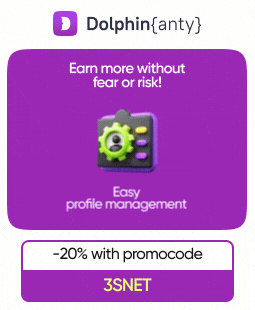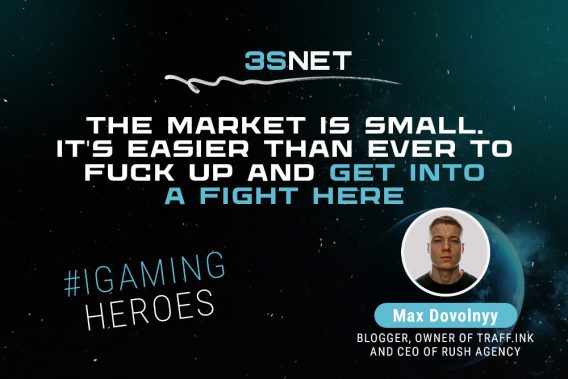
Publication date: 2 August 2024
In August 2024, YouTube video hosting in Russia will be slowed down. The speed is expected to be 70% slower on the desktop. However, on the mobile version (from a smartphone) and via an app on TV, the speed will remain the same.
- On August 1, Russian users began to complain about a mass failure in the work of YouTube. According to the website Failure.rf, the problems affected the desktop version (autotuning to 144p), iOS and Android applications.
- In June 2024, YouTube’s audience in Russia (according to Mediascope) amounted to 96 million people per month, or 75% of the population. Meanwhile, the service is the 4th most popular behind Yandex and Google search engines and WhatsApp messenger.
Reasons for the YouTube slowdown in Russia
There are several factors contributing to the slowdown of one of Russia’s most popular video hosting platforms.
Alexander Khinshtein, chairman of the State Duma Committee on Information Policy, stated that “the authorities are trying to make the platform reconsider its actions.” He explained that the site has been consistently violating the law and has ignored opportunities to address these issues. “If the hosting service doesn’t change its stance, its future in Russia looks bleak,” Khinshtein warned.
Meanwhile, Rostelecom attributed YouTube’s slowdown to technical issues related to Google’s equipment, which is integrated into the operator’s network infrastructure and peer-to-peer connections. This equipment is responsible for caching and speeding up content downloads, but with a surge in traffic, the capacity has become overloaded, impacting YouTube’s loading speed and video playback quality for Russian users.
However, on August 2, 2024, Google representatives denied involvement, stating that the company had no connection to the issue. They claimed there were no hardware malfunctions and that no “technical measures” had been taken on their part.
- Russia is also introducing measures to control the operation of the resource. On July 30, 2024, a bill was passed* on tightening the conditions for issuing SIM cards, which means changes for owners of YouTube channels. Now bloggers and channel owners with an audience of more than 10,000 subscribers will be obliged to report personal data to Roskomnadzor, transfer subscribers’ data, label advertisements and not distribute prohibited information.
YouTube analogues. Where to watch videos?
In Russia, there are several video services that can become an alternative to YouTube. These platforms offer a variety of content, and some of them have significantly increased their popularity and number of users. Most authors have parallel channels on different services. Therefore, if YouTube is lagging, slow and does not load videos, look for the right content on other platforms.
Top 5 services for watching and publishing videos
- DTube Online has a simple interface and is similar to YouTube. DTube is a decentralized service often referred to as “YouTube without censorship”. Videos are not moderated, allowing content creators to publish material quickly and use any hashtags. At the same time, there is quality control, which is carried out by the users themselves. DTube Online has approximately 360 thousand visits per month.
- Peer Tube is another decentralized P2P video hosting platform. It allows users to upload, create, search and comment on video content. This platform is based on a network of independent servers. We did not find any information about prohibiting or allowing gambling or betting ads on this platform. Peer Tube features more than 600,000 videos from 150,000 users that have been viewed more than 70 million times.
- RuTube is a Russian video platform that was launched in 2006. It is positioned as the main alternative to YouTube in Russia. The platform supports user-generated content, offers live streaming, and works with Russian media companies to host their videos. The number of users in 2024 is 47.6 million. On RuTube, gambling and betting ads are allowed under Russian law.
- VK Video is another platform for viewing video content integrated with VKontakte and Odnoklassniki social networks. The online resource includes a wide range of video content (movies, TV series, user-generated videos and broadcasts). The platform supports video creation and uploading, live broadcasting, and content monetization for authors. In the first quarter of 2024, the average daily audience (DAU) of VK’s services reached 78 million users. There is a VK Clips service for posting and watching shorter videos.
- Yandex.Zen is one of the leading media platforms in Russia with a personalized content feed. The system selects articles, news and blogs based on each user’s interests and requests, and the video promotion algorithm works in the same way. Horizontal video clips can be up to 3 hours long, which is convenient for interviews, reviews and documentaries. According to various sources, the audience of Yandex.Zen counts 80 million active users per month.
Share it with your friends via favorite social media
Similar posts

The most popular messenger in Russia is named
WhatsApp is declared as the most popular messenger in Russia The absolute majority of smartphone ...




























